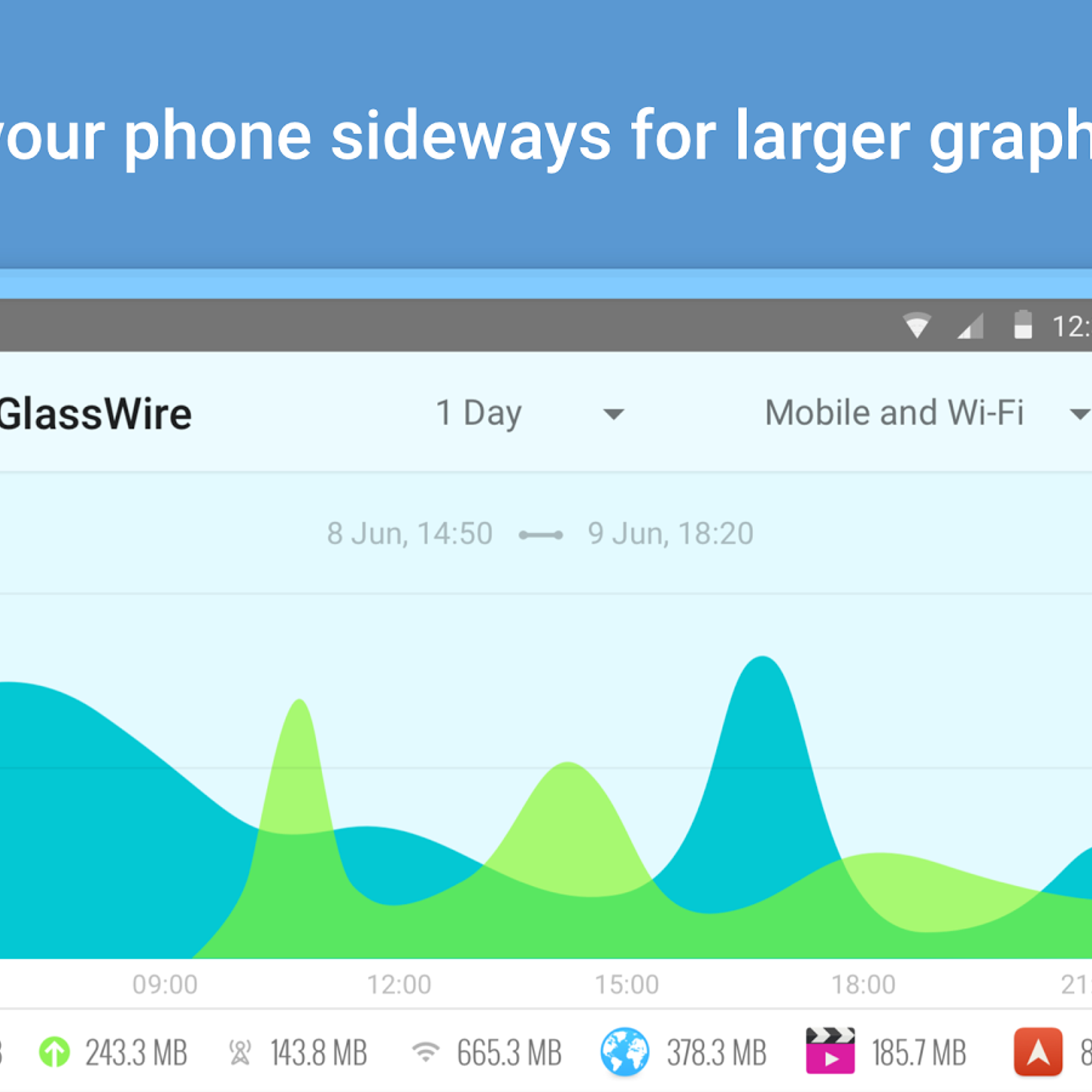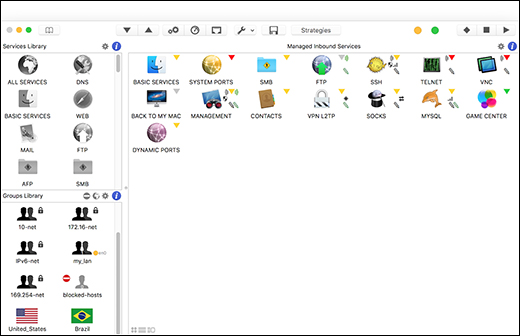Glasswire Vs Little Snitch
Aug 28, 2019 GlassWire also notifies you about spikes, the familiar perils, unexpected network system file changes, ARP spoofs, DNS changes. It is very much useful so you can take fast actions against these hazards. Little Snitch. It is known to all that firewall saves your computer against unnecessary visitants from the Internet. But Snitch protects. Aug 25, 2014 GlassWire is kind of like 'Little Snitch' in the way that it shows you everything and lets you make your own decision on what you want to do, but we also add in some extra protections like malicious host alerts, ARP spoofing detection, DNS server changes, Host changes, and we let you know about changes to your applications that are accessing. GlassWire is a modern personal firewall and network monitor with over 19 million downloads. Download GlassWire free! Go to GlassWire's settings and choose “remote server” to logon to your server after you have installed GlassWire on your local computer and remote server. GlassWire works exactly the same way on a remote server as it does on your local computer. See security alerts, new app network activity, and much more! Buy GlassWire. GlassWire is not available for Mac but there are some alternatives that runs on macOS with similar functionality. The most popular Mac alternative is Little Snitch. It's not free, so if you're looking for a free alternative, you could try BitMeter OS or Bandwidth+. GlassWire free firewall software and network monitor can detect threats other miss. Download GlassWire free firewall now to protect your computer. Little Snitch is a host-based firewall application created for Mac and iOS devices that helps you know when your application is communicating online and allows you to deny or enable access accordingly. It is a complete tool that comes with all the leading tools and features to deliver all-in-one experience.
 LS4 has had a few private betas up until now, but it's in public beta at this point and some of the new stuff they've been working on is pretty interesting. Their main landing page has been updated for LS4 [1] and has a nice general summary of new features with screenshots, but trying to submit that link just goes back to the HN discussion on LS3 five months back [2]. The What's New is more detailed. I'm particularly curious how their improved Research Assistant 2.0 will turn out. They're making an effort to open it up and turn LS4 into a bit more of a platform, allowing 3rd party devs to make specific descriptive information available:
LS4 has had a few private betas up until now, but it's in public beta at this point and some of the new stuff they've been working on is pretty interesting. Their main landing page has been updated for LS4 [1] and has a nice general summary of new features with screenshots, but trying to submit that link just goes back to the HN discussion on LS3 five months back [2]. The What's New is more detailed. I'm particularly curious how their improved Research Assistant 2.0 will turn out. They're making an effort to open it up and turn LS4 into a bit more of a platform, allowing 3rd party devs to make specific descriptive information available:>Third party developers can now bundle their apps with an Internet Access Policy file containing descriptions of all network connections that are possibly triggered by their app. Little Snitch will then display that information to users, helping them in their decision how to handle a particular connection. A description of the policy file format will be provided soon.
Check the State or Current Setting of TCP Receive Window Auto-Tuning. Open elevated command prompt with administrator’s privileges. Type the following command and press Enter: netsh interface tcp show global. The system will display the following text on screen, where you can check on the Auto-Tuning setting: Querying active state TCP Global Parameters. Tcp receive window size. Disabling linux tcp receiver window auto tuning. I'm working on linux (2.6.43.8-1.fc15.i686.PAE) and face some problem to disable auto tuning of the TCP receiver window.
Research Assistant is a useful feature and at first blush this seems to have the potential to make it even better, assuming LS has enough market penetration to actually get more then a handful of devs to provide a description. The spirit of transparency is a good one too. One thing I wonder about though is how well they're prepared to deal with lying, because this seems like it could possibly open up a potential risk for social engineering. Can the developer of an application making a connection a power user would consider worth blocking actually be trusted provide their own description? If they do lie (directly or by omission) or even simply obfuscate about what it's doing, is Obdev up to policing that?
Ouying Min Voice Changer Microphone, with Built-in Sound Card, Pop Fliter, Tripod Stand and Metal Rod, Portable Karaoke Mic, for Computer Phone Ipad and More X2A Gold 3.7 out of 5 stars 11 $33.99 $ 33. Auto tune for laptop to mic.
Having used it since version one though I'm excited about a lot of the new changes. I hope OpenSnitch and similar projects are inspired and vice versa.
1: https://www.obdev.at/products/littlesnitch/index.html
2: https://news.ycombinator.com/item?id=13443858
Little Snitch is probably the best host-based application firewall solution for macOS app. I’ve been using it for quite a while but recently ditched it when I found a free alternative that equally works great.
Glasswire Review Windows
If you’re using the free version of Little Snitch, you have to deal with the fact that it automatically quits after every three hours. To avoid this, you have to buy the full version. If you’ve been looking for a free Little Snitch alternative that works with macOS Mojave and previous macOS versions, Lulu is what you need.

Unlike Little Snitch, Lulu is an open source software with its source code already on GitHub. This means that it’s not just free, but also anyone can contribute to its development.
Glass Wire Vs Little Snitch 3
Same approach to application firewall
If you’ve been using Little Snitch before now, you shouldn’t have a problem using Lulu. Lulu uses the same approach to application firewall
After installing it, you can choose to allow all default Apple apps and existing third-party apps to connect to the Internet without confirmation.
The choice you make here depends on how you wish to use the program. Personally, I only allow Apple-signed programs to connect automatically, all third-party apps require manual confirmation to create rules.
Clicking the Block or Allow button determines whether the application will access the Internet or not. Checking the temporarily box makes the rule temporary for that specific program ID. It resets when you quit the app or restart your computer and the dialogue box will pop up again.
Just like Little Snitch, it has a panel where you can remove existing rules and add new ones manually:
Ever since I upgraded to macOS Mojave, I’ve been using the new system-wide dark theme which Lulu neatly blends in with.
Glasswire Vs Little Snitch Movie
For a free app, Lulu is incredibly well-built. It’s been about a week now and I haven’t encountered a bug. If you don’t want to spend a dime on a firewall app, this free little alternative is really worth trying. You can download it from the official website or take a look at the source code on GitHub.